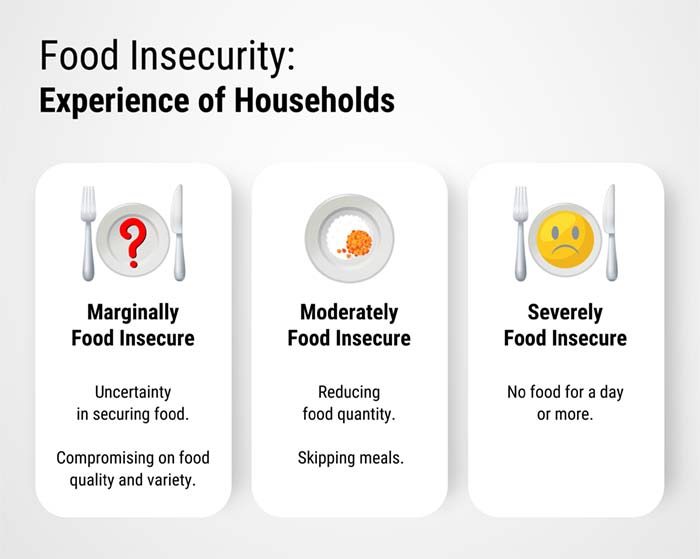Business
Prioritising Child-Friendly Policies: Addressing Sri Lanka’s child malnutrition crisis

By Dr Nisha Arunatilake
Even before the onset of COVID-19, malnutrition stood as a significant driver of multi-dimensional poverty among children in Sri Lanka. Startling data from the Department of Census and Statistics (DCS) in 2019 revealed that one in three children aged 0 to 4 who are multidimensionally poor, are either underweight or stunted. The multiple crises that affected Sri Lanka since 2020 have only exacerbated the already precarious nutrition situation in poor households. This blog argues the need for prioritising social policies focused on children to ensure sustained investment in human capital.
Crisis Impact on Government Initiatives
In response to the pressing nutrition issues in the country, successive governments have introduced several initiatives to maintain the minimum required nutrition levels to ensure unhampered growth and development. However, the crisis affected several of these nutrition programmes, depriving households of access to much-needed social assistance for maintaining nutrition, when it was needed the most.
One such initiative that was adversely affected was the Triposha programme. Triposha is a nutrient-dense food supplement given to pregnant mothers and young children affected by malnutrition. During the crisis, supply chain disruptions and issues of sourcing ingredients necessary for production resulted in a 51% drop in the production of Thriposha in 2020. This resulted in many identified households not receiving nutrition assistance through Triposha.
Another programme adversely affected by the economic crisis was the breakfast programme for preschool (BPS) children. The BOS provides children in selected pre-schools with a daily nutritious breakfast according to the Ministry of Health guidelines. In 2017, a sum of LKR 30 was allocated per child per meal for this programme. Despite high food inflation, this amount was not revised, making it impossible to supply meals as specified by the Ministry of Health.
The Plight of the Urban Poor
A study by the Institute of Policy Studies of Sri Lanka (IPS) finds that the recent economic crisis had devastating effects on the food environment in urban underserved settlements (USSs). According to retail and eatery owners serving these communities, food prices have skyrocketed during the economic crisis. The price of nadu-rice, the cheapest variety of rice in the market, doubled from LKR 100 in August 2021 to LKR 220 in August 2022. The prices of other staples frequently consumed by poor households, like dhal, eggs, dried fish and dried sprats, also increased several folds.
The crisis also reduced the availability of food in the market. The policies introduced by the government to contain the import costs, such as the chemical fertiliser ban and food imports, reduced the variety of food in the market. Further, the vendors were storing less expensive food items in the market as the demand for expensive food items reduced due to low affordability.
As explained by a retail owner in the area:
“I used to stock 50kg of rice earlier, now, I only stock 5kg of rice.”
“We used to keep stocks of green gram and cowpea. But now only one or two customers buy those items, so I do not stock them anymore.”
Coping with Food Inflation
The households in the USSs were using various methods to cope with food inflation. Most stopped eating from outside and reduced buying snacks. Consumption of milk, vegetables, fruits, and meat has all been reduced. One of the main sources of fat for USS residents, coconuts, has also declined during the crisis. As explained by some of the residents:
“We used to drink tea with milk in the morning and afternoon. Now we can only have milk tea in the morning.”
“We used to eat about 250g of vegetables per meal earlier. Now we make the same amount of vegetables last for two meals.”
“We only eat chicken once or twice a week. We try to manage mainly with dried fish and eggs for protein.”
“We rarely eat fruits now. Fruit is expensive. If we buy fruit, we don’t have money for other food.”
“We used to eat about one coconut a day earlier. Now we make one coconut last several days, as the price of coconuts has increased.”
The above findings show that households were either marginally or moderately food insecure during the economic crisis (See infographic). Households in USSs have compromised on food quality and variety, or reduced food consumption due to the crisis.
Conclusion
The findings from Sri Lanka emphasise the pressing issue of child malnutrition, which has only worsened amidst recent crises. Although there are several government initiatives to improve the nutrition levels of children in the country, their operations were severely affected by the economic crisis.
More attention needs to be paid to sustaining the social policies focusing on children, particularly during times of crisis. Only by doing so, we can ensure that children’s development is not compromised due to crisis and that they have the opportunity to thrive, regardless of the adversities they face.
Link to original blog: https://www.ips.lk/talkingeconomics/2023/10/11/prioritising-child-friendly-policies-addressing-sri-lankas-child-malnutrition-crisis/
Dr Nisha Arunatilake is the Director of Research at IPS. She heads the Labour, Employment and Human Resource Development unit at the IPS. Her research interests include labour market analysis, education and skills development, migration and development, and health economics. She holds a BSc in Computer Science and Mathematics summa cum laude from the University of the South, USA and an MA and PhD in Economics from Duke University, USA. (nisha@ips.lk)
Business
AHK Sri Lanka champions first-ever Sri Lankan delegation at Drupa 2024

The Delegation of German Industry and Commerce in Sri Lanka (AHK Sri Lanka) proudly facilitated the first-ever Sri Lankan delegation’s participation at Drupa 2024, the world’s largest trade fair for the printing industry and technology. Held after an eight-year hiatus, Drupa 2024 was a landmark event, marking significant advancements and opportunities in the global printing industry.
AHK Sri Lanka played a pivotal role in organising and supporting the delegation, which comprised 17 members from the Sri Lanka Association for Printers (SLAP), representing eight companies from the commercial, newspaper, stationery printing, and packaging industries. This pioneering effort by AHK Sri Lanka not only showcased the diverse capabilities of Sri Lanka’s printing sector but also facilitated vital bilateral discussions with key stakeholders from the German printing industry.
Business
Unveiling Ayugiri: Browns Hotels & Resorts sets the stage for a new era in luxury Ayurveda Wellness

In a captivating reimagining of luxury wellness tourism, Browns Hotels & Resorts proudly unveiled the exquisite Ayugiri Ayurveda Wellness Resort Sigiriya. This momentous occasion, celebrated amidst a vibrant and serene grand opening on the 6th of June, heralds a new chapter in the Ayurveda wellness tourism landscape in Sri Lanka. Nestled amidst 54 acres of unspoiled natural splendour, Ayugiri features 22 exclusive suites and stands out as the only luxury Ayurveda wellness resort in the country offering plunge pools in every room, rendering it truly one-of-a-kind.
The grand opening of Ayugiri Ayurveda Wellness Resort was an enchanting event, where guests were captivated by the melodies of flutists and violinists resonating through Sigiriya’s lush landscapes. As traditional drummers and dancers infused the air with vibrant energy, Browns Hotels & Resorts’ CEO, Eksath Wijeratne, Kotaro Katsuki, Acting Ambassador for the Embassy of Japan and General Manager, Buwaneka Bandara, unveiled the resort’s new logo, marking a significant moment witnessed by distinguished guests from the French Embassy, Ayurveda and wellness enthusiasts along with officials from the Sigiriya area, LOLC Holdings and Browns Group.
“Our strategic expansion into wellness tourism with Ayugiri Ayurveda Wellness Resort Sigiriya symbolises a significant milestone for Browns Hotels & Resorts. Wellness tourism has consistently outperformed the overall tourism industry for over a decade, reflecting a growing global interest in travel that goes beyond leisure to offer rejuvenation and holistic well-being. By integrating the timeless wisdom of Ayurveda with modern luxury, we aim to set a new standard in luxury wellness tourism in Sri Lanka. Whether your goal is prevention, healing, or a deeper connection to inner harmony, Ayugiri offers a sanctuary for holistic well-being” stated Eksath Wijeratne.
Ayugiri encapsulates the essence of life, inspired by the lotus flower held by the graceful queens of the infamous Sigiriya frescoes. Just as the lotus emerges from the murky depths, untainted and serene,
Ayugiri invites guests on a journey of purity and rejuvenation, harmonised with a balance of mind, body and spirit, the essence of nature, echoes of culture and the wisdom of ancient Ayurvedic healing.
Business
HNB General Insurance recognized as Best General Bancassurance Provider in Sri Lanka 2024

HNB General Insurance, one of Sri Lanka’s leading general insurance providers, has been honored as the Best General Bancassurance Provider in Sri Lanka 2024 by the prestigious Global Banking and Finance Review – UK.
The esteemed accolade underscores HNB General Insurance’s unwavering commitment to excellence and its outstanding performance in the field of bancassurance. Through dedication and hard work, the HNB General Insurance team has continuously endeavored to deliver innovative insurance solutions, cultivate strong relationships with banking partners, and provide unparalleled service to customers nationwide. This recognition is a testament to the team’s dedication and relentless pursuit of excellence in the bancassurance business.
“We are honored to receive this prestigious award, which reflects our team’s tireless efforts and dedication to delivering value-added insurance solutions and exceptional service through our bancassurance partnerships,” said Sithumina Jayasundara, CEO of HNB General Insurance. “This recognition reaffirms our position as a trusted insurance provider in Sri Lanka and motivates us to continue striving for excellence in serving our customers and communities.”



















